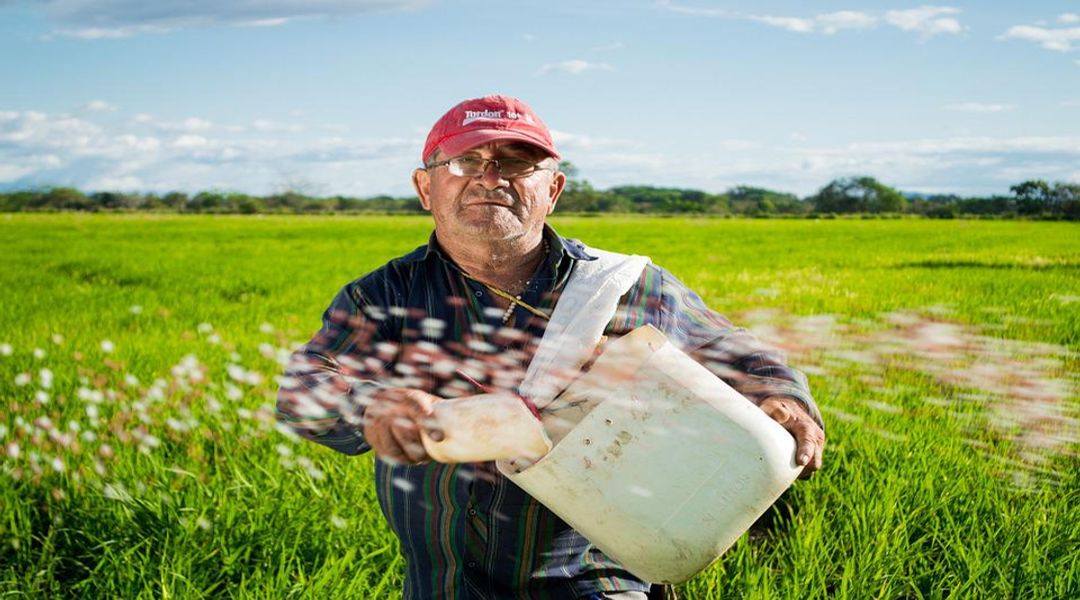Aside from harvesting produce and raising farm animals to make a living, another important goal is for farmers to protect their land and boost profitability—especially if the farmer is indebted and currently paying a mortgage for the said farmland. With the help of grants, loans for farmland, crop insurance, and disaster assistance, you can guarantee a steady income for your farm, consistently having enough income for mortgage payments and putting food on the table.
But before you can apply for crop insurance and other loans for your farmland needs—you will need to obtain a Farm Serial Number (FSN), also referred to as a farm number. All farmers should get a farm number as it is an essential first step to applying for farm funding and farm insurance—which will ultimately put farmers one step closer to reaching maximum profitability.
What is a Farm Number?
Before getting one, you should probably know what a farm number is first. A farm number identifies which zone your farm is located in, similar to a zip code. Some people are lucky enough to buy farmland with an existing farm number—meaning they will not have to get one. Because a farm number is only associated with the land and not the person—once a farm number is issued, there is no need to get a new one in case the farmland has new owners.
Benefits of Having a Farm Number
Getting a farm number has more benefits than you think. Aside from pointing out the exact location of your farm, a farm number can also help you get into funding programs, allowing you to access a bigger budget for your farmland’s improvement. Here are the benefits you can get if you obtain a farm number:
Identify Yourself as a Farmer
With a farm number, you can be included in the Agricultural Census or farmer database—which will give accurate data about farms in the United States, which could translate into more resources and support for farms all over. A farm number will also identify where your farm is located as it works like a zip code that indicates where each farm is located. Although it can help you identify yourself as a farmer, the farm number is attached to the land itself and not the person—just to be clear.
Although there are three ways to identify yourself as a farmer, such as filing a schedule F on your federal taxes with the IRS and going to your local county tax office—getting a farm number is the best way with more benefits.
Allows Farmers to Apply for Loans for Farmland
By obtaining a farm number, your chances of applying and getting approved for loans for farmland needs will increase. On top of that, your chances of easily getting disaster assistance and crop insurance from private lenders and insurance companies as a farm number can make your farm look more legitimate and trustworthy.
Get Into Programs That Require a Farm Number
Some funding programs require having an FSA farm number, which can help you improve your farm’s income through expansion or by repairing old farm infrastructure. Here are the programs that you might need and gain access to by getting a farm number:
- Loans from private lenders
- FSA elections
- The Environmental Incentives Program
- Natural Resources Conservation Service
- Crop insurance programs
- Disaster assistance programs
A Chance to Build a Relationship with The FSA office
As a farmer, your local FSA office is one of the best places to get advice. Getting a farm number is the first step to gaining farming and farmland knowledge and funding opportunities from the FSA.
Get Agricultural Tax Exemptions
There are three requirements to be exempted from agricultural sales tax, and getting an FSA number is one. This will save you a lot of money at the end of the year, allowing you to pay off your debt quickly if you have any or just have more money in the bank for future wants and needs.
How to Get a Farm Number
Getting a farm number requires completing paperwork and sending documents verifying land ownership. It may sound like a lot of work, but the good thing is that farm numbers are free for farmland owners. However, the FSA does random checks, so make sure you do what you claim to be doing on your farm to avoid any problems. Note that there is no minimum acreage to get a farm number. Here are the steps you need to take to obtain a farm number:
Step 1: Contact your local FSA office
You can start by contacting your local FSA office in person or through a virtual appointment. The meeting will usually last up to 30 to 60 minutes, which may vary depending on the availability of the staff. After speaking to them, they will send you the paperwork you need to complete.
Step 2: Gather all the requirements
You will need identifying documents, such as your passport, state ID, driver’s license, EIN, or social security number. You will also need to prepare your land documents, such as the deed to the land or a rental agreement if you are renting. You will not need the original documents—copies of the deed or rental agreement would be enough.
Step 3: Complete filling out the paperwork
The paperwork is probably the most tedious part of the process. Individuals applying would have to complete a little over 20 pages and would probably take 2 hours. For business entities, the paperwork would be a little longer—with individual paperwork for each entity member.
Step 4: Submit the paperwork and get your farm number
Once you have finished all the pages, you must submit them for filing. The time will vary from case to case because sometimes, the FSA would need to follow up with more documents. However, if you have everything they need when applying, you can get your farm number immediately.
References:
- https://www.farmraise.com/blog/a-farm-number-what-is-it-and-why-is-it-important
- https://www.fsa.usda.gov/Assets/USDA-FSA-Public/usdafiles/Outreach/pdfs/Brochures/4%20Steps%20to%20Assistance.pdf
- https://www.rafiusa.org/blog/beginning-farmers-how-and-why-to-get-a-farm-number/

